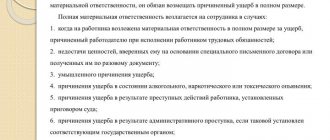You can report a crime, an administrative offense or an incident orally or in writing to the police.
You can orally make a statement about a crime and a statement to surrender; other oral appeals are messages. In particular, you can verbally report circumstances indicating signs of a committed or impending crime, an administrative offense, as well as incidents that threaten personal or public safety, including accidents, traffic accidents, accidents, catastrophes, natural disasters, etc. in respect of which verification actions are required in order to detect signs of a crime or administrative offense.
You can contact any territorial body of the Ministry of Internal Affairs of Russia (police unit), as well as by telephone, in particular by calling the helpline in the hotline system of the Ministry of Internal Affairs of Russia.
A statement of a crime as a reason for initiating a criminal case is an oral or written application by an individual to a law enforcement agency with information about an impending or committed crime and, as a rule, a corresponding request to take the necessary measures, since the applicant is personally interested in taking such measures.
Sample crime reports:
Reporting a crime. Sample (general form) Statement of a crime (fraud) Statement of a crime, bringing a witness to criminal liability for giving false testimony in a civil case Statement of a crime to the police about beatings (beatings for hooligan reasons were inflicted by unknown persons on the street) Statement of beatings to the police. Sample (bodily injuries were caused by an acquaintance) Application to initiate a criminal case of private prosecution to a magistrate
The requirements for this application are quite clearly defined in Art. 141 Code of Criminal Procedure of the Russian Federation.
Reporting a crime in writing
The written application is drawn up in free form. The application indicates the name of the territorial body of the Ministry of Internal Affairs of Russia or the official to whom the application is addressed. The application shall indicate the full name. the applicant, address, telephone number and other contact information of the applicant, the circumstances of the crime being prepared or committed (for example, the subject, method, place and time of the crime, its participants, eyewitnesses and other circumstances known to the applicant). That is, the applicant must describe in as much detail as possible the act that, in his opinion, is criminal. The application must be dated and signed.
It should be borne in mind that if the application does not set out all the circumstances of the incident, this is not a basis for refusing to accept the application. So, for example, the applicant may, for some reason, not indicate a description of the alleged criminal, not remember the exact time of the commission of illegal actions, not indicate the value of the stolen property, etc. Such gaps can be filled in when giving explanations as part of the verification of a statement of crime (Article 144 of the Code of Criminal Procedure of the Russian Federation). Such information can also be established within the framework of operational-search activities.
A citizen of the Russian Federation, a foreign citizen or a stateless person has the right to contact the police with a statement. The application can be submitted by either the victim (victim) of a crime, offense or incident or his legal representative, or any other person.
An application for surrender is submitted by the person who committed the crime (Part 1 of Article 142 of the Code of Criminal Procedure of the Russian Federation).
When receiving a written statement about a crime, the applicant is warned about criminal liability for knowingly false denunciation (Article 306 of the Criminal Code of the Russian Federation), about which a corresponding note is made, which the applicant certifies with his signature.
However, it should be noted that Article 141 of the Code of Criminal Procedure of the Russian Federation provides for only one requirement in relation to written statements - they must be signed by the persons from whom they originate; the issue of warning the applicants about criminal liability for a knowingly false denunciation could be resolved upon receipt of explanations from the applicants or their interrogation. Despite this, departmental instructions that determine the procedure for receiving, registering and verifying reports of crimes, despite the absence in the Code of Criminal Procedure of the Russian Federation of a direct indication of the need to warn applicants who have submitted written statements about criminal liability, as a rule, contain this requirement.
It should also be noted that the disposition of Art. 306 of the Criminal Code of the Russian Federation does not indicate the presence of a warning about criminal liability for knowingly false denunciation as a mandatory sign of a crime. In other words, the crime is considered completed from the moment when law enforcement agencies received a knowingly false report of a crime. Thus, criminal liability for knowingly false denunciation occurs regardless of whether the applicant was warned or not.
General design rules
General requirements for written appeals are set out in Federal Law No. 59 “On the procedure for considering appeals from citizens of the Russian Federation.” Based on it, as well as generally accepted business practice, the application consists of five details:
- Information about the addressee and applicant.
- Title of the document.
- Formulation of a request or proposal.
- Date of application.
- Signature.
Information about the addressee and applicant
In the upper right corner you must indicate to whom this statement is intended and, in fact, from whom it is.
Addressee information
Since the application is an official document, we write it not just to a person on the street, but to an official. Therefore, we make sure to indicate:
- Addressee's position.
- Name of the organization.
- His first name, patronymic and last name.
The name and position of the addressee must be written in the dative case (we ask ourselves the question “to whom?”). For example, director Petrov or rector Ivanova.
Applicant information
In the information about the applicant, most often it is enough to simply indicate your last name and first name. When necessary, you can supplement with an indication of your position or status. We indicate this data in the genitive case (we ask ourselves the question “from whom?”).
Disputes often arise about whether it is necessary to put the preposition “from” in the line about the applicant. That is, which is correct: “Ivanova Maria” or “from Ivanova Maria”? Both options are valid.
The traditional form is to write without a preposition. But try reading the entire sentence - a series of first and last names sounds quite confusing. With a pretext this problem does not arise: it is immediately clear to whom and from whom.
Title of the document
It would seem that there is nothing difficult about simply writing a “statement.” However, there are some nuances here too. The most common question: should I write this word in capital or small letter? There are three valid spellings here.
With a lowercase letter at the beginning of the line and a period after the word
Traditional way of design. In this case, information about the addressee and applicant and the title of the document are considered one sentence.
Capitalized without a dot at the end
When you write the word “statement” in the center of the paper, it becomes the title of the entire document. And the same rule applies to it as to other headings: the first letter is capital, and there is no period at the end.
In capital letters without a dot at the end
The same rule applies here as in the previous paragraph. In the center is the title of the document, which means there is no need for a period at the end. This type of spelling is usually found if the text is typed on a computer rather than written by hand.
Formulation of a request, complaint or suggestion
This part starts with a red line. You are writing a statement for a specific purpose and must explain here exactly what you want from the addressee. Describe the reason for your request, your request, your arguments.
The wording is not limited by any rules, but vernacular language will look inappropriate here.
Try to adhere to a formal business style. Express your thoughts simply and concisely.
To justify the fairness of your request, you can attach additional documents to the application and refer to them in this part.
Date of application
Typically, the filing date is indicated immediately after the statement of the essence of the application and is aligned to the left.
You can also indicate the date immediately after the name of the document.
Signature
The signature on the application is always put manually, even if you filled out everything else on the computer. It is aligned to the right.
Reporting a crime orally
When a statement about a crime is made in writing, then, regardless of the method of delivery to a law enforcement agency, the statement is subject to registration and then consideration by competent persons. When a statement is made orally by a person arriving at a law enforcement agency, it is entered into a special protocol.
As a necessary condition for accepting an oral statement about a crime, the legislator specifies a warning about criminal liability for a knowingly false denunciation, which, in accordance with Part 6 of Art. 141 of the Code of Criminal Procedure of the Russian Federation, “a mark is made in the protocol, which is certified by the signature of the applicant.”
If the application is made orally, and the applicant cannot be personally present when the protocol is drawn up (for example, in a hospital, etc.), a report must be drawn up on this matter (Article 143 of the Code of Criminal Procedure of the Russian Federation).
Where and when to submit it?
The Code of Criminal Procedure of the Russian Federation describes in detail the rules by which a complaint about theft is filed with the police, but the deadline for filing a complaint is not established. That is, the submission deadline is not limited by time. The victim should take into account that there are statutes of limitations for criminal prosecution and they are according to Art. 78 of the Criminal Code of the Russian Federation for two years when committing crimes of minor gravity (almost all household thefts fall into this category).
Thefts and thefts specifically (theft means the removal of things secretly for the criminal) are dealt with by investigators and police investigators. The investigation is carried out in accordance with Art. 152 of the Code of Criminal Procedure of the Russian Federation, by employees of the department at the place where the act was committed. The victim has the right to apply at his place of residence, but the materials will still be sent to the right department.
Anonymous reports of crime
Statements about crimes that do not contain any information about the author, without a signature or signed by a fictitious person, or a person who really exists but did not write the statement, and also that do not contain information about the place of residence, work, study of the applicant are recognized as anonymous and cannot be made grounds for initiating a criminal case.
By virtue of the direct instructions of the law (Part 7 of Article 141 of the Code of Criminal Procedure of the Russian Federation), anonymous statements cannot serve as a reason for initiating a criminal case. However, this provision does not mean that anonymous statements are not taken into account by law enforcement agencies at all. Any such statement containing information about a crime being prepared or committed can and should be verified by the investigative body whose competence includes the disclosure of this crime, first of all, by conducting appropriate public or covert operational investigative activities, as a result of which the question of initiating a criminal case is decided according to the rules of Article 143 of the Code of Criminal Procedure of the Russian Federation.
Thus, anonymous statements, as a rule, should be transferred to authorized units for operational work.
Sample applications
Let’s move on from theory to practice and consider the features of filing the most common applications.
Application for a job
By law, it is not necessary to write an application when applying for a job. But sometimes you may be asked to write it for reporting or data collection in order to draw up an employment order based on this document.
The addressee may be the head of the organization or the head of the human resources department. In the text of the application, indicate the proposed position and date of hire.
Additionally, you can list the documents that you submit along with the application: TIN, work book, certificate of compulsory pension insurance, diploma, military registration documents.
Application for another paid leave
This is a request for annual paid leave. The application must be written if your organization does not have a vacation schedule or if your vacation schedule is scheduled for an inappropriate time.
Application for leave must be submitted two weeks before the date of expected departure.
Application for maternity leave
This statement is written by women before going on maternity leave. The text must indicate the duration of the vacation, according to the terms from the sick leave certificate for the antenatal clinic. The latter, by the way, must be attached to the application.
Application for leave at your own expense
In this case, the employee requests several days of leave without pay. Additional documents may be attached to the application to confirm that administrative leave is indeed necessary.
When you are going to take several days off, for example, for family reasons, you also need to write an application for unpaid leave. The second option is to write an application for a day off on account of paid leave.
Application for resignation
The employee requests termination of the employment contract between him and the employer. In the reasons, you can indicate that this is dismissal at your own request, by agreement of the parties, or at your own request without working off. Lifehacker has a separate article on the nuances of competently drafting a resignation letter.
Application for academic leave
Academic leave is granted in exceptional cases: for health reasons, difficult family circumstances or other reasons. Therefore, in your application you need to not only ask for leave, but also explain why you need it.
Please indicate the availability of additional documents. For example, certificates from the hospital.
What rights and responsibilities are entrusted
In a police organization, an authorized representative is needed in several cases:
- if the legal entity is an injured party in an administrative or criminal case;
- if the legal entity is a guilty party in an administrative or criminal case;
- if questions arise to the organization during administrative or criminal proceedings.
All functions of the representative are prescribed in the document, it is like a power of attorney to file an application with the police, to make petitions, to collect and provide evidence and to give testimony. Formulations can be both specific and general. For example, they regulate that an authorized representative receives authority to:
- interaction with the police and other government agencies on behalf of the organization in order to protect its interests;
- submission and signature of any documents, statements and petitions;
- performing other procedural actions.
The form of the document allows you to define a narrow range of duties and powers of the representative, which is exhaustive. If necessary, they will have to be expanded and a new report will have to be submitted to the police.
How to file a police report through State Services
You can submit an application not only at the police department, but also through your personal account on the State Services website. In accordance with legal requirements, anonymous applications will not be considered. Therefore, the service is available only to citizens whose identity has been reliably established. If a citizen has not previously registered on the site, you should click the “Register” button.
After registering your personal account, you need to find the “Security and Law Enforcement” section in the menu, then select the “Acceptance of statements about offenses” category. On the page that opens, click the “Submit Application” button and fill out all sections in the form that opens.








